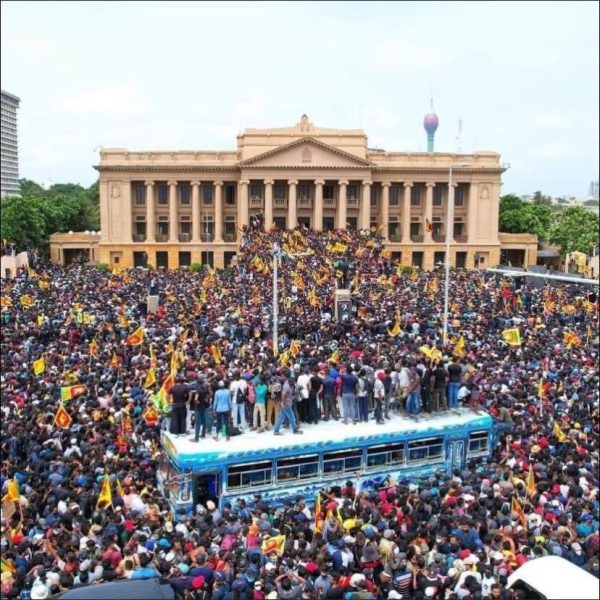
Crisis in neighbourhood: Bangladesh joins Pak, Lanka in seeking IMF loan

With Bangladesh also seeking loans from International Monetary Fund (IMF) and Asian Development Bank (ADB) to bolster its foreign exchange reserves, India’s neigbourhood seems like being swamped by economic crisis of various degrees.
The situation in Sri Lanka is there for the world to see. Almost bankrupt, the island country saw a record high inflation, rising commodity prices, power shortages, a crippling fuel crisis and economic collapse. This led to widespread protests by people which eventually resulted in a change of government.
Sri Lanka defaulted on its foreign debt of more than $50 billion in May, the first Asia-Pacific country to do so in more than two decades, after effectively running out of foreign reserves. The lack of foreign currency for imports triggered crippling shortages of everything from fuel to medicine, leading to a collapse in living standards.
Delay in IMF bailout
To tide over the situation, the island country started negotiations with the IMF this year for a $3 billion bailout. It is also in talks with lenders like ADB and countries like India and China for more financial aid. It though is facing problems in securing an early bail-out.
Sri Lanka’s new president Ranil Wickremesinghe, who took over in July after protesters forced his predecessor Gotabaya Rajapaksa to flee the country, said that securing a loan from the IMF would take until at least September. “I was aiming for July to reach an agreement and to get the IMF board approval by first week of August,” said Wickremesinghe, who previously served as prime minister.
“Since the incidents [political turmoil] all these will now be delayed. It will take until the end of August. Only in September we will be able to get approval,” he added.
Wickremesinghe had earlier said that he wanted a deal as early as June. Some analysts feel that the government would probably need to pursue a package of painful economic reforms before finalising an IMF deal. But this could trigger more public protests, others opine.
Sri Lanka has become an extreme example of the pressures facing many developing countries over the global surge in fuel and food prices following Russia’s invasion of Ukraine, which exacerbated the financial strain caused by the Covid-19 pandemic.
Pak sees progress in stalled deal
Several of Sri Lanka’s neighbours are also under pressure. Pakistan this month agreed a preliminary deal for a more than $1 billion disbursement from the IMF to top up its own foreign currency reserves.
Finance minister Miftah Ismail said that thanks to progress on a stalled IMF loan as well as spending cuts, Pakistan sees a way out of its current economic crisis without descending into default.
He was referring to the nation’s staff-level agreement with the IMF for reviving a $6-billion loan programme. Pakistan needs a total $33.5 billion in the year through June 2023, while available financing stands at $35.9 billion for the period, according to a presentation by the State Bank of Pakistan.
Pakistan reduced its imports by 35 per cent to $5 billion in July, which will help check the nation’s current-account gap. The IMF bailout will also help reduce energy demand and imports that have been straining the economy.
Pakistan’s rupee has overshot to the downside temporarily but is expected to appreciate in line with fundamentals over the next few months, the central bank and finance ministry said in a rare joint statement released near midnight on July 31.
Pre-emptive move by Dhaka
The fuel prices are also rising in Bangladesh and rising cost of energy imports after the Russia-Ukraine war are eating into the forex reserves. Bangladesh is thus seeking assistance from IMF, the World Bank and ADB to tide over the problem.
The government has reportedly written letters to the World Bank and ADB seeking $1 billion each from them to help the economy cope with the ripple effects of the war in Ukraine and energy price shocks.
This came days after the government sought a loan from the IMF, in a move seen as a pre-emptive measure to shore up the country’s foreign exchange reserves. “Not only the IMF, but we will also go to the World Bank and the ADB,” Bangladesh Finance Minister AHM Mustafa Kamal had said at a media briefing in Dhaka on July 27.
The request for loans followed widening of country’s trade deficit to a record $33.3 billion in the fiscal year ended June. Also, Bangladesh’s foreign exchange reserves slipped to $39.48 billion as of July 27 from $45.7 billion a year earlier.
Kamal earlier told a press conference in Dhaka that the pressure on consumer prices would ease in a month, and the taka would stabilize. The economy would get back on track “very soon,” he added.
Also read: IMF slashes global growth rate for FY22, FY23; India’s rate down by 0.8%
With alarming conditions in the neighbourhood, there has been concern over the economic situation in India too. Rising fuel prices and falling rupee, among other things, has alarmed many experts who say that if situation continues as it is, India too might fall in a debt trap. The issue was raised in Parliament recently during a debate on the rising prices of daily commodities, but finance minister Nirmala Sitharaman allayed such fears and said the Indian economy is resilient.
As for record, India has not taken any financial assistance from the IMF since 1993. Repayments of all the loans taken from IMF were completed on May 32, 2000.


